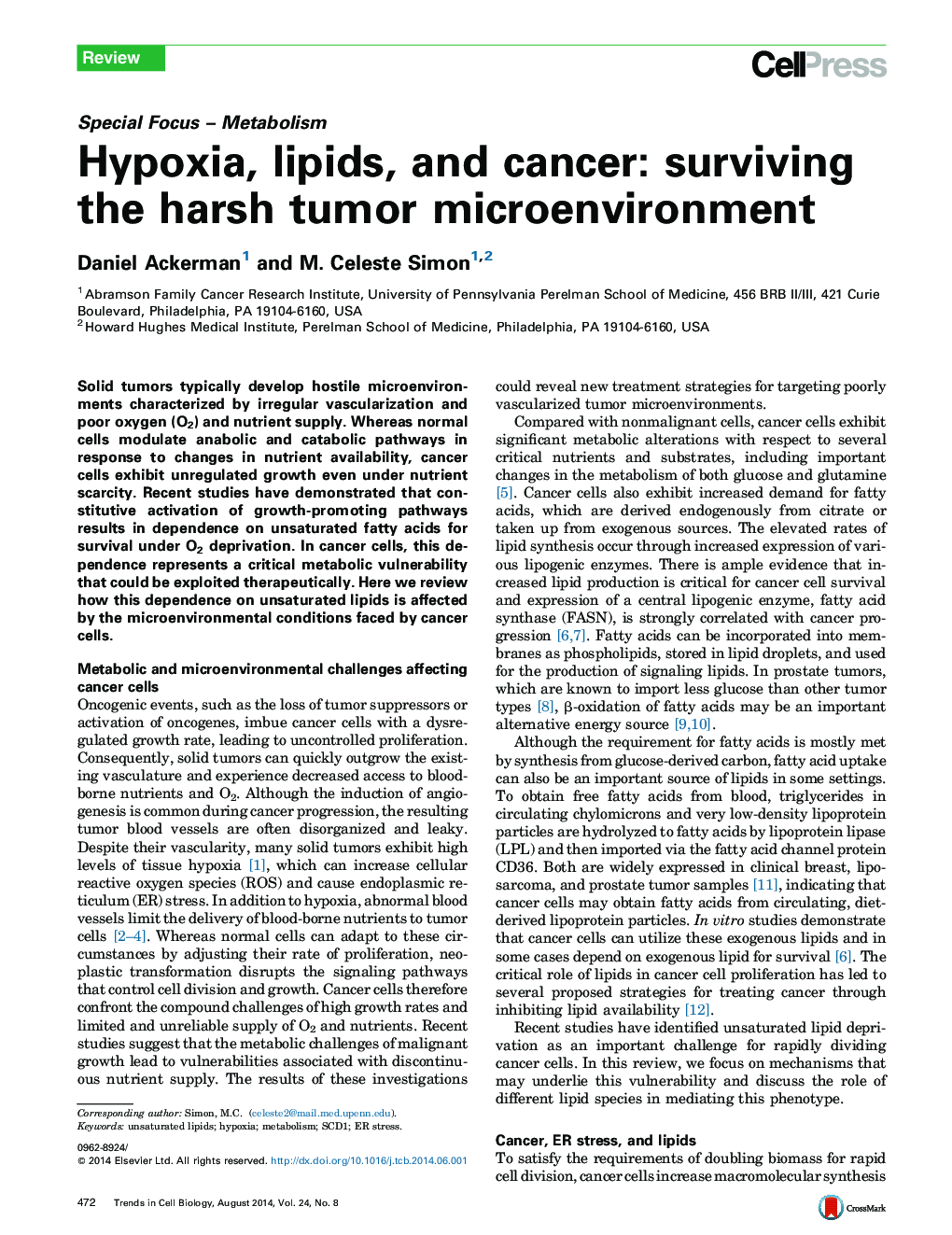| Article ID | Journal | Published Year | Pages | File Type |
|---|---|---|---|---|
| 2204522 | Trends in Cell Biology | 2014 | 7 Pages |
•Cancer cells inhabit a challenging microenvironment.•Malignant cells do not adjust their rate of proliferation in response to nutrient availability.•Rapid growth in the context of limited nutrients and O2 results in metabolic challenges.•These challenges create metabolic vulnerabilities for cancer cells.
Solid tumors typically develop hostile microenvironments characterized by irregular vascularization and poor oxygen (O2) and nutrient supply. Whereas normal cells modulate anabolic and catabolic pathways in response to changes in nutrient availability, cancer cells exhibit unregulated growth even under nutrient scarcity. Recent studies have demonstrated that constitutive activation of growth-promoting pathways results in dependence on unsaturated fatty acids for survival under O2 deprivation. In cancer cells, this dependence represents a critical metabolic vulnerability that could be exploited therapeutically. Here we review how this dependence on unsaturated lipids is affected by the microenvironmental conditions faced by cancer cells.
